10 Ways to Prevent Flu in Seniors
When we become older, our immune systems typically lose their ability to combat illnesses as efficiently as they previously did. As a result, the winter season, when illnesses such as colds and influenza may spread rapidly, is a possibly fatal period for old people.
Having a cold or the flu isn't fun at all. Colds may produce a persistent cough and sneezing, while the flu can induce a high temperature, stuffiness, pains, and shivers. Both have the potential to develop into pneumonia, a deadly illness that affects thousands and thousands of people in the United States each year. According to research findings, influenza could also increase the chance of having heart disease or stroke. As bad as it has ever been, last year's influenza epidemic was the worst yet. The influenza is famously hard to forecast, so it's not obvious what that indicates for this winter.
Here are some tips regarding things you can do to protect yourself and minimize your chances of getting the flu.
1. Get the Flu Shot
As a general rule, everybody could use a flu shot, but it is particularly crucial for the elderly. Our body systems start generating fewer antibodies to combat diseases such as the flu as we get older. As a result of these adjustments, more clinics now provide flu vaccines specifically for the elderly market. Check with your physician to see whether a high-dose flu vaccine is available for older adults. It is possible to enhance your immune system with a high-dose vaccination during the influenza period.
When it comes to flu shots, now is the opportunity to receive one if you haven't done so before. In order to get the maximum advantages of flu vaccination, your body may need two weeks of recovery time. So, to keep yourself safe for the remaining of the winter, obtain your flu vaccination as soon as you can.

2. Clean the Cellphone
In terms of fighting influenza, a cellphone is a gadget we frequently overlook. However, the phone might be one of the strongest breeding grounds for pathogens. The viruses we are trying to combat may really be avoided if we sanitize the phones well and follow the care guidelines. Keeping our phones clean is particularly necessary if we allow others to use them. You may disinfect your phone or tablet by wiping it down with an antibacterial wipe or by putting some rubbing alcohol on a dry towel.
3. Disinfect the Space
Keeping your surroundings as germ-free as feasible during influenza season is a wise choice. Wipe, wash, and sanitize again. Be extra careful with the kitchen and bathroom, since viruses thrive in these areas. And, while it might seem apparent, it needs to be repeated: use hygienic brushes and cloths, since utilizing nasty cleaning equipment will act against your objective of removing germs and keeping healthy. If you notice someone has been ill in your home lately, be particularly serious in your cleaning attempts.
4. Drink Water
Being hydrated is essential for good health. And the best method to remain hydrated is to drink plenty of water. If you are not into water, you may replace it with other drinks, such as hot tea, to stay hydrated. (Hot tea is great for strengthening your nasal passages, which are a strong, natural system for keeping harmful viruses out of your body.) Stay hydrated as much as possible to offer your body the greatest potential of fighting against the virus.
5. Stay Home
Of course, you don't have to stay indoors for the whole time of the cold season while being sociable is a positive, desirable choice. But senior citizens should definitely avoid meeting those who are ill as much as possible. If you realize your friend is sick, postpone your meal arrangements or get a rain check. Don't be ashamed to decline an invite! Supporting your own health also means defending the well-being of others you care about. The greatest way to combat influenza is to eliminate flu viruses at all expenses.
6. Get Enough Sleep
Another strategy to keep your immune system in tip-top condition is to obtain your recommended six to eight hours of sleep every night. These rest hours will improve your body's renewal process, allowing it to combat infections more effectively. It's also a good idea to sleep in a separate room from your sick spouse or parent throughout the course of their sickness.
7. Wash your Hands.
It's best to clean your hands before touching things like door handles, handrails, or lift buttons if you're going to be out of the home for a while. Carry a container of alcohol-based sanitizer in your bag, luggage, or first-aid pack if soap and water are unavailable.

8. Exercise
You are more susceptible to germs if you are stuck at home all of the time. Moreover, being outdoors encourages physical exercise and social engagement, both of which are beneficial to your immune system. Exercise, to a large extent, can lower your chances of getting an upper respiratory infection. When scientists followed 1,000 persons over the course of a winter season, they discovered that those who worked out at least five times each week were 40 percent less prone to become ill than those who worked out just one time or fewer each week on average.
Older adults are not required to engage in strenuous exercise on a daily basis. Take a vigorous 20-minute walk every day, if the weather allows, at least five times each week. Walking aid equipment, such as an upright walker, would make it simpler for older persons with mobility impairments to go for a daily stroll. Keep in mind to dress adequately for the chilly weather outside.
9. Clean All Surfaces Often
All surfaces, just the same as your hands, must be cleaned on a regular basis in order to stop viruses from circulating. Search your home for the places that are most often touched and tackle them with the most powerful cleansers you have. Begin with the counters, door handles, refrigerator handles, taps, tv remote controls, laptops, and cellphones, then work your way down the list. Some viruses have been found to survive upon such surfaces for up to multiple days, so be sure to clean properly.
10. Open a Window
It goes without saying that blowing a chilly wind on a sick person is not a good idea. However, it is necessary to have some fresh air flowing around the home for your own breathing comfort. Open a couple of windows in each and every room (apart from the one where your ill wife/husband or parents rest). Alternatively, take a stroll and breathe in the fresh air outside of the premises.
It's likely that you've had influenza in the past, and you're acquainted with the symptoms. Nonetheless, as we previously indicated, flu symptoms might become more serious as we grow older. It is critical that you see your physician if you are sick with influenza or believe you are suffering from it. Older adults are often sick with the influenza for about two weeks, so don't put off visiting your physician and consulting him or her about measures to treat your symptoms.
Recommend Products
-
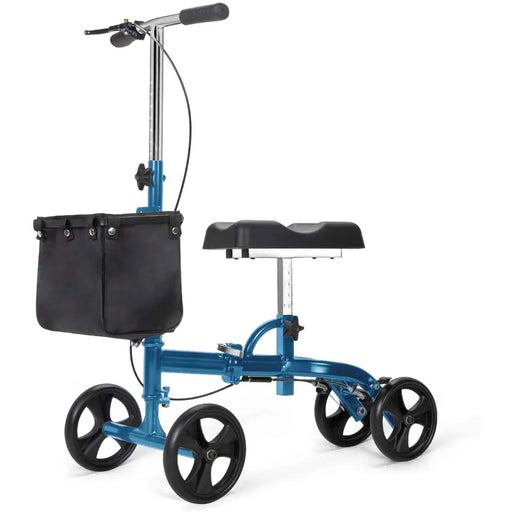
Economy A - 300 LBS Capacity Knee Scooter
From Original price $128.99Original priceFrom $128.99From $128.99Current price $128.99OasisSpace Economy Knee Walker OasisSpace Economy Knee walker is the most cost-effective knee scooter. Good-looking, full-featured, low price, fr...
View full detailsFrom Original price $128.99Original priceFrom $128.99From $128.99Current price $128.99 -
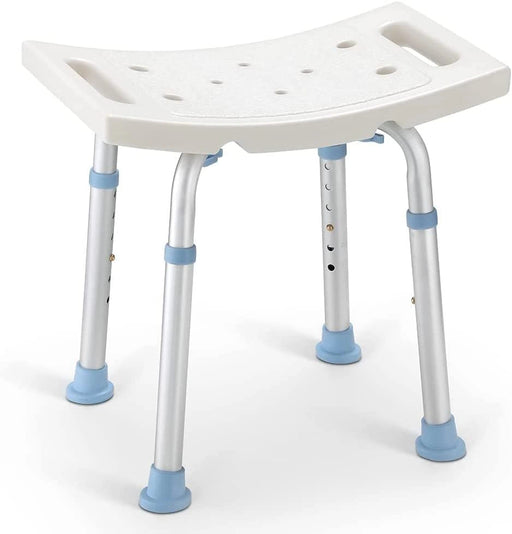 Sale
Sale
Standard - 300LBS Capacity Shower Stool
Original price $51.99From Original price $28.99Original price $51.99Current price $28.99From $28.99Current price $28.99OasisSpace Medical Square Shower Stool for Bathtub OasisSpace Square Shower Stool for Bathtub is approved as the highest standard(FDA) for medical...
View full detailsSaleOriginal price $51.99From Original price $28.99Original price $51.99Current price $28.99From $28.99Current price $28.99 -
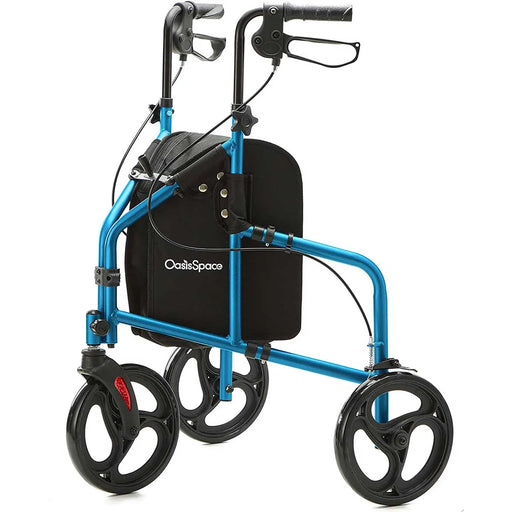
Flexible - 3 Wheels Rollator Walker
From Original price $79.99Original price$79.99From $79.99Current price $79.99OasisSpace Flexible 3 Wheel Rollator Walker for Seniors -Lightweight & Convenient OasisSpace Flexible 3 Wheel Rollator Walker adopts a triangu...
View full detailsFrom Original price $79.99Original price$79.99From $79.99Current price $79.99 -
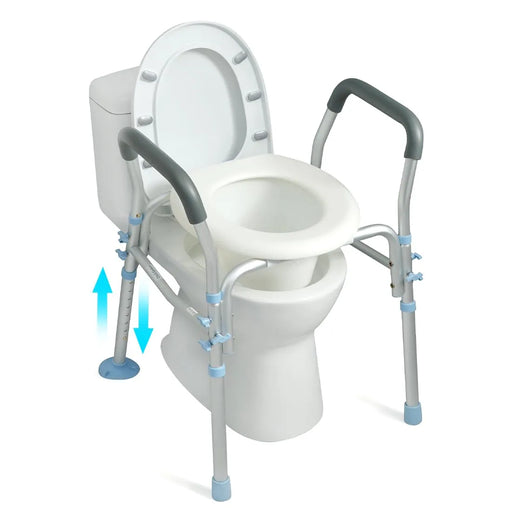 Sale
Sale
300LBS Capacity Raised Toilet Seat with Arms
Original price $120.99From Original price $69.99Original price $120.99Current price $69.99From $69.99Current price $69.99OasisSpace Raised Toilet Seat with Arms - Safe and Convenient OasisSpace Raised Toilet Seat with Arms provides stable support for users to sit dow...
View full detailsSaleOriginal price $120.99From Original price $69.99Original price $120.99Current price $69.99From $69.99Current price $69.99 -
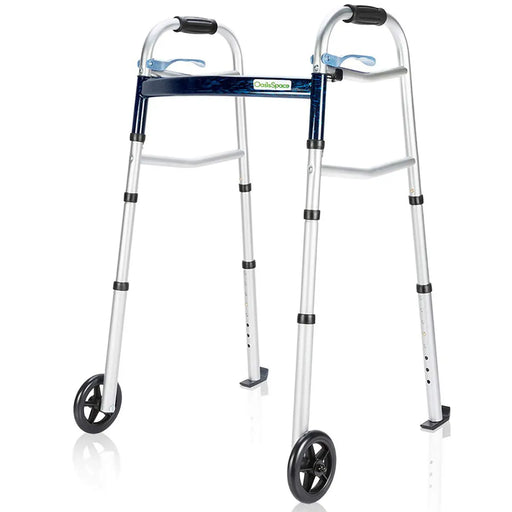
350LBS Capacity 2 Wheel Walker
From Original price $39.99Original price$39.99From $39.99Current price $39.99Product Advantages OasisSpace's 350LBS Capacity walker offers a fusion of lightweight design and sturdy support, crafted from high-grade anodized ...
View full detailsFrom Original price $39.99Original price$39.99From $39.99Current price $39.99 -

Wall Mounted - 400LBS Capacity Teak Folding Shower Seat
From Original price $131.99Original price$131.99From $131.99Current price $131.99Advantages OasisSpace Teak Wall-Mounted Shower Seat adopts a folding design, which can save space to the greatest extent and can be folded up at a...
View full detailsFrom Original price $131.99Original price$131.99From $131.99Current price $131.99 -
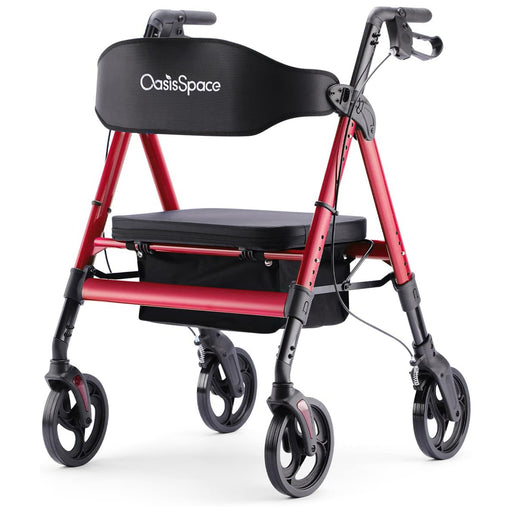 Sale
Sale
Heavy Duty - 450LBS Capacity Bariatric Rollator Walker
Original price $237.99From Original price $179.99Original price $237.99From $179.99From $179.99Current price $179.99OasisSpace Heavy Duty Rollator Walker- a Powerful Assistant for the Bariatric Elderly OasisSpace Heavy Duty Bariatric Rollator Walker with seat i...
View full detailsSaleOriginal price $237.99From Original price $179.99Original price $237.99From $179.99From $179.99Current price $179.99 -
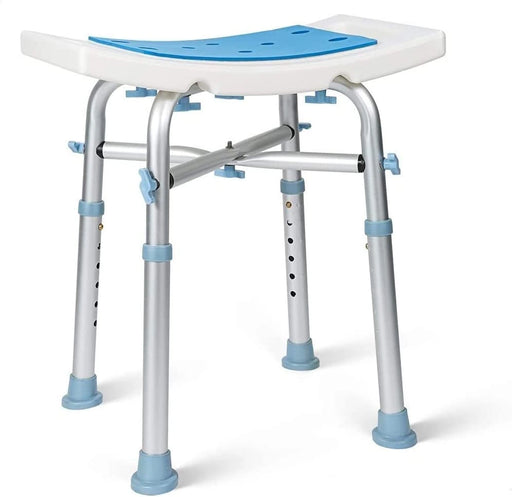 Sale
Sale
Padded & Bariatric - 500LBS Capacity Heavy Duty Shower Stool
Original price $57.99From Original price $36.99Original price $57.99Current price $36.99From $36.99Current price $36.99OasisSpace Medical Heavy Duty Bariatric Shower Stool OasisSpace Medical Heavy Duty Bariatric Shower Stool is approved by the FDA, which is the hig...
View full detailsSaleOriginal price $57.99From Original price $36.99Original price $57.99Current price $36.99From $36.99Current price $36.99 -
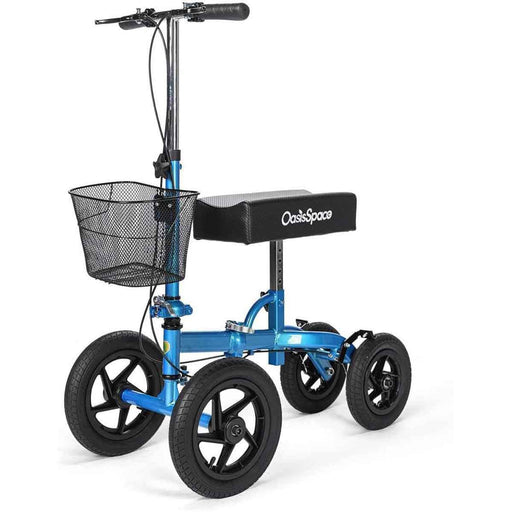 Sale
Sale
All-Terrain-300 LBS Capacity Knee Walker Scooter
Original price $239.99From Original price $189.99Original price $239.99Current price $189.99From $189.99Current price $189.99All-Terrain Knee Scooter Huge & All-Terrain Wheels The front all-terrain pneumatic wheels come with 12inch,which provide better stabilit...
View full detailsSaleOriginal price $239.99From Original price $189.99Original price $239.99Current price $189.99From $189.99Current price $189.99 -
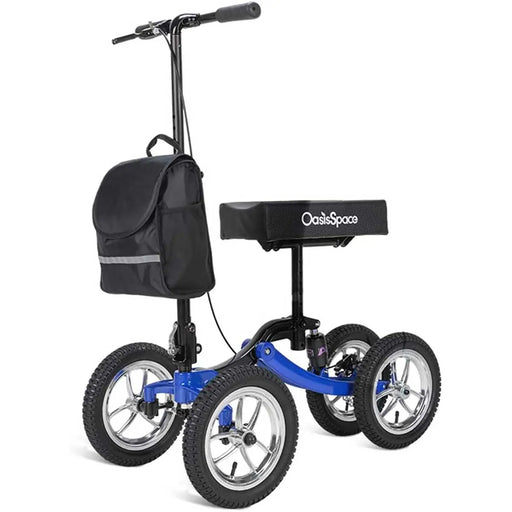 Sale
Sale
Explorer - 300 LBS Capacity Knee Scooter
Original price $300.99From Original price $289.99Original price $300.99Current price $289.99From $289.99Current price $289.99Product Main Advantages OasisSpace Explorer Off-road Knee Scooter is equipped with pneumatic tires, bearing 300lbs. With shock absorption, disc bra...
View full detailsSaleOriginal price $300.99From Original price $289.99Original price $300.99Current price $289.99From $289.99Current price $289.99











